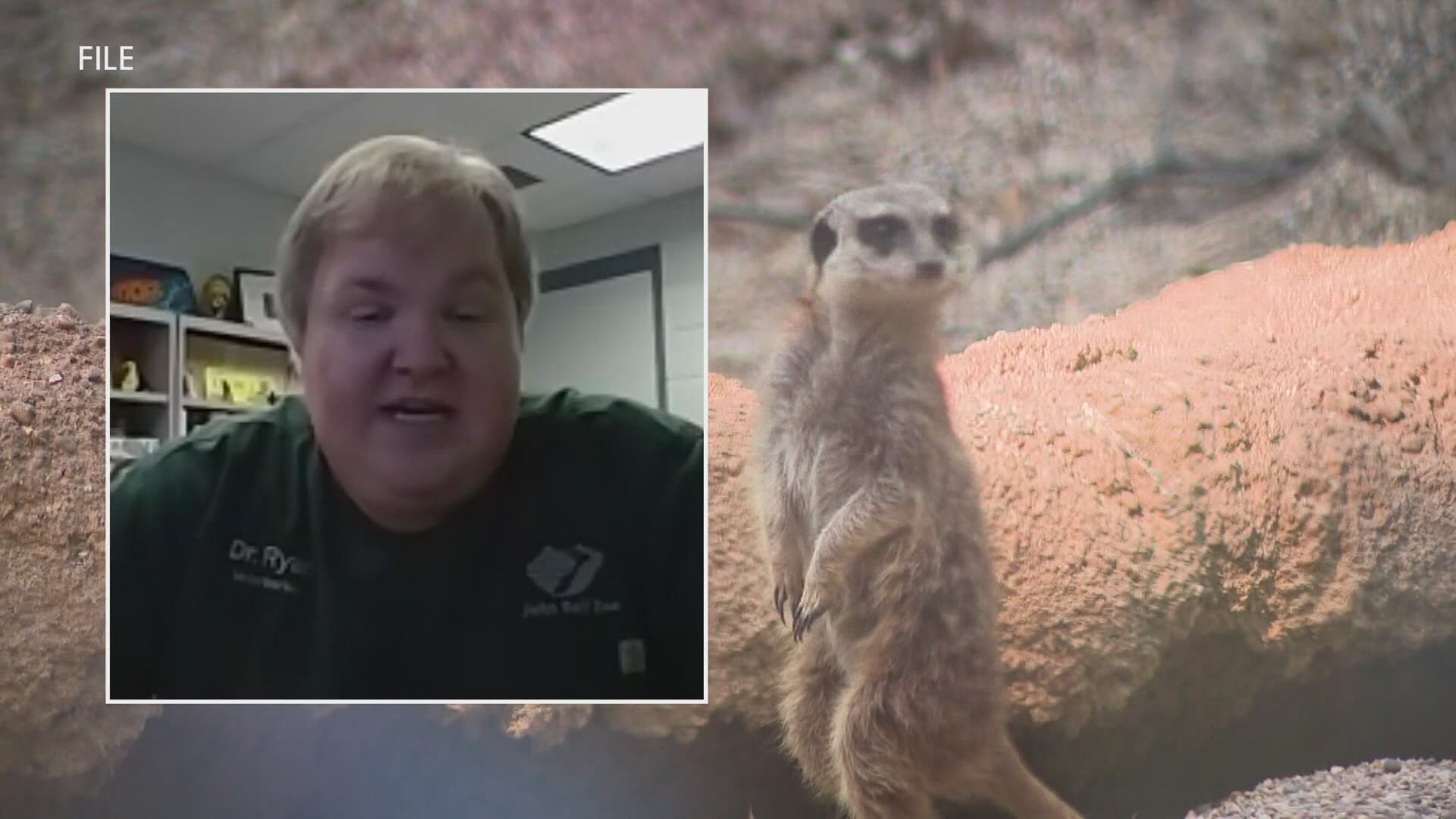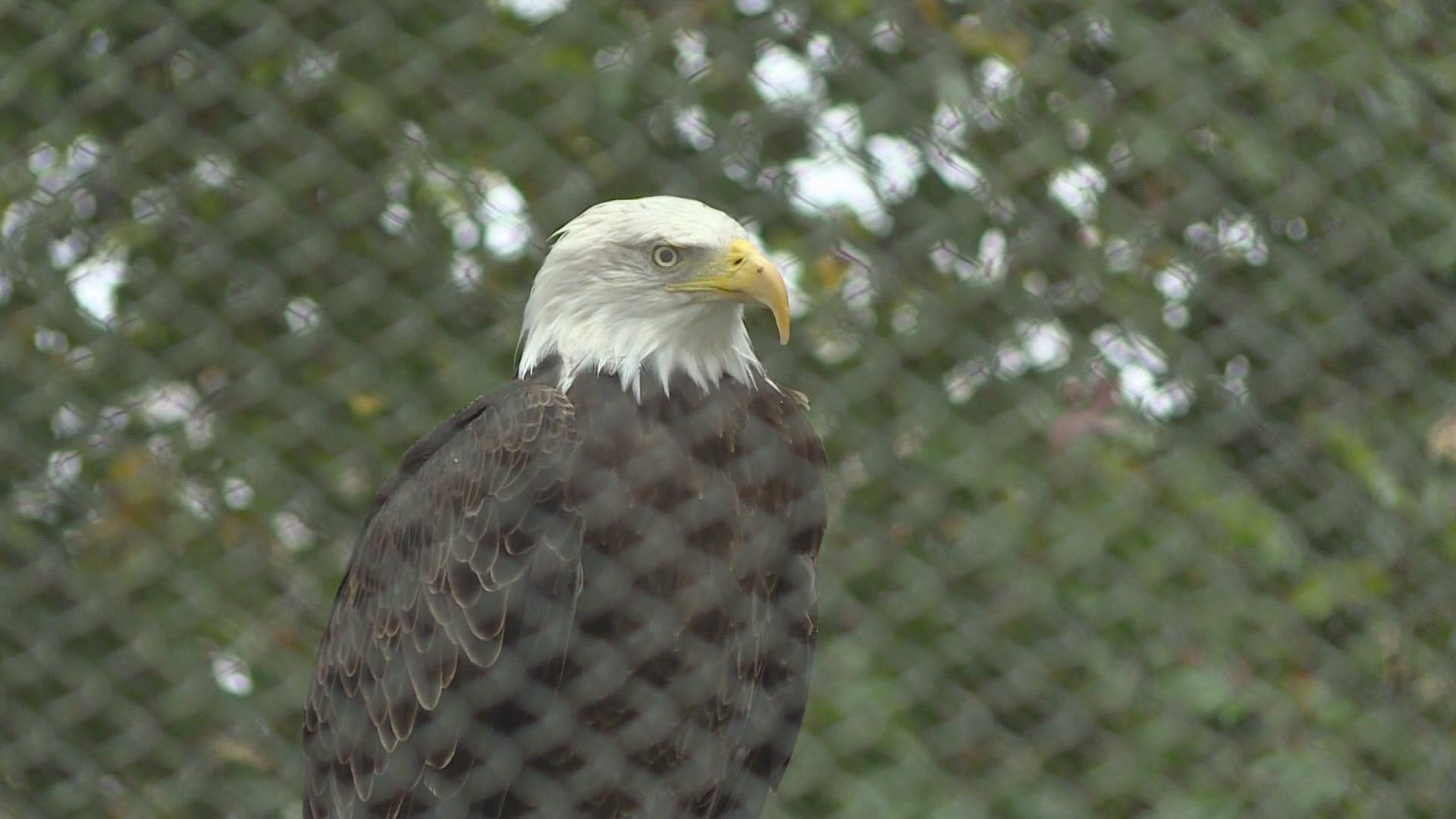GRAND RAPIDS, Mich. — The John Ball Zoo is closed to the public for the season. But behind the scenes, the zoo's veterinarian works to keep the animals safe from COVID-19.
The animals can contract the virus just like humans can. While no cases have been confirmed at John Ball Zoo, other zoos across the country have reported cases. Most recently, gorillas tested positive at a San Diego Zoo.
"It was honestly kind of surprising that it took almost an entire year before we saw a case like we're seeing now with the gorillas," said Ryan Colburn, the zoo's veterinarian, "And early on, our initial focus was on non-human primates, or chimpanzees, monkeys and lemurs, because we know that they're genetically similar to human beings. Thus, we often share a respiratory viruses."
However, one of the first few cases of COVID-19 reported in zoo animals across the country were in large cats. So last year, Colburn and his team began monitoring their lions, tigers, and other big cats closely. He also said there have been reports of infections in otters and skunks at other locations.
Aside from the typical winter sniffles, none of the animals at John Ball Zoo have presented with symptoms similar to COVID-19. Colburn and the handlers monitor for respiratory distress, much like humans. They do not, however, do routine COVID testing on the animals.
"Routine testing, in terms of just blanket screening, is something that's not recommended right now for a variety of reasons," said Colburn, "We don't want to utilize the resources that really need to be focused on human testing."
In the event an animal is showing signs of the virus, Colburn said in Michigan, the zoo would approach the state veterinarian's office to obtain approval to run a test. If that test is positive, the case will need to be verified by a federal laboratory.
WATCH MORE OF THE INTERVIEW WITH JOHN BALL ZOO'S VETERINARIAN:
Without positive cases at John Ball Zoo, their primary focus is prevention for both the animals and the handlers.
"It means adding face masks, face shields, gloves, things like that, when we're having those sorts of interactions with the animals," said Colburn, "all of the staff that prepare diets for the animals here at the zoo are wearing face masks and gloves. We're maintaining that same kind of six foot cushion of space between us and the animals whenever possible."
Elective medical procedures are looked at on a risk basis, and some have been delayed. Certain training was initially postponed at the beginning of the pandemic, but has since restarted in some capacities.
When the zoo was open last season, guests may have noticed additional safety measures like signs encouraging distancing and mask wearing. Colburn said what the guests do not often see is the work done behind the scenes to protect the animals and the guests.
"We literally went through and evaluated every exhibit where could guests could get within that six foot bubble," said Colburn, "and we added some extra barriers in spaces to just kind of keep that distance there, and spaces that we thought needed it."
There are no plans right now to give the covid vaccines to the zoo animals. Colburn said it's an evolving situation, and one day they might. However, the cases studied in animals are much more mild than cases in humans.
"The drastic need that we see on our side, on the human side," said Colburn, "is not what we're seeing on the veterinary side."
RELATED VIDEO:
►Make it easy to keep up to date with more stories like this. Download the 13 ON YOUR SIDE app now.
Have a news tip? Email news@13onyourside.com, visit our Facebook page or Twitter. Subscribe to our YouTube channel.


